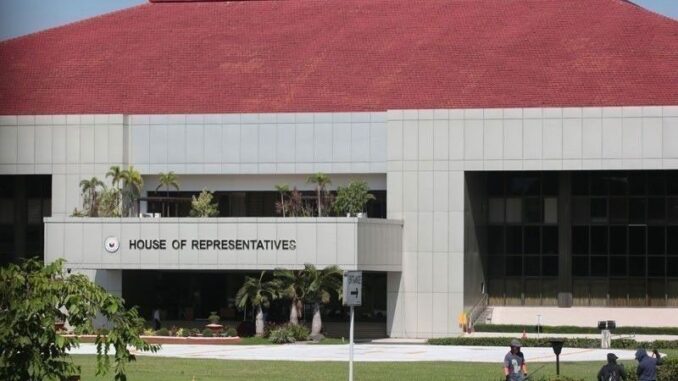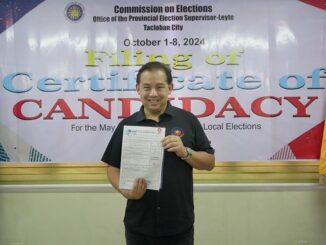
MANILA, Philippines — A four-person team tasked by Speaker Martin Romualdez to introduce amendments to the P6.352-trillion 2025 national budget has allocated an additional P292.2 billion for social services and food security.
“The additional funding is crucial for supporting those in need. We’re providing assistance to struggling families, especially during these challenging times,” House appropriations committee chairman Rep. Zaldy Co said.
In a statement, the panel chairman stressed the additional funding aims to address the pressing needs of vulnerable sectors, including financially challenged students, farmers, fisherfolk, soldiers, indigent families and those who barely passed the poverty threshold.
The Ako Bicol party-list representative said the “new funding” of P292.2 billion is on top of the P591.8 billion already set aside by the Department of Budget and Management for cash assistance to impoverished families.
Among the key enhancements in the 2025 General Appropriations Bill include the extra P39.8 billion for the Assistance to Individuals in Crisis Situations under the Department of Social Welfare and Development (DSWD) designed to offer immediate support to those facing financial hardships.
Due to the wide acceptance and public clamor for the Ayuda para sa Kapos ang Kita Program (AKAP), the House earmarked another P39.8 billion for cash assistance targeting those who earn P21,000 and below per month.
The amount is three times bigger than the actual 2024 allocation of P13 billion.
Co said AKAP is designed for the “near poor” or “lower middle class” segment of the population, including minimum wage earners vulnerable to economic shocks like the sudden death of the household head, sickness, loss of jobs or runaway inflation that can easily send them back to poverty.
At the same time, the House allocated P3.4 billion for the Sustainable Livelihood Program for low-income families.
“We believe that empowering individuals through livelihood programs will help break the cycle of poverty,” Co added.
Meanwhile, panel member Marikina Rep. Stella Luz Quimbo stressed the importance of pro-active measures in the proposed budget.
She said the Department of Labor and Employment will receive an additional P20.28 billion for the Tulong Panghanapbuhay sa Ating Disadvantaged/Displaced Workers and the Government Internship Program.
“We must have funds on standby to support those who have crossed the poverty threshold to prevent them from falling back into poverty due to economic challenges. This budget is not just about numbers; it’s about the lives we can uplift,” Quimbo said.
The Co-led panel also realigned P30 billion for the Department of Agriculture’s Philippine Irrigation Network Piping System, solar-powered irrigation systems and cold storage projects.
Additionally, P44 billion has been added to the National Irrigation Administration’s budget for establishing pump irrigation and solar-driven pump irrigation projects.
“Food security is a priority for our nation and these investments will help ensure that our farmers can thrive,” he stated.
A separate P30-billion additional funding was also allotted to support the education of the impoverished by way of providing scholarships for underprivileged but deserving students who want to pursue tertiary education.
According to Co, this funding will be “split evenly” between the Commission on Higher Education’s Tertiary Education Subsidy and Tulong Dunong programs.
“Investing in education is investing in the future. Every child deserves the chance to learn and succeed,” said Quimbo.
The Department of Education will benefit from an additional P7 billion for the construction of new school facilities and repair of existing ones.
This funding aims to address the pressing need for improved educational infrastructure, particularly in underserved areas, Co said.
DSWD politicizing aid?
Meanwhile, the Office of the Vice President (OVP) is accusing the DSWD of sitting on thousands of applications for assistance the former referred to the agency.
Hinting at the DSWD’s supposed favoring of “other politicians” for its assistance payouts, the OVP branded Social Welfare Secretary Rex Gatchalian’s assertion that it never rejected its requests for assistance as “inaccurate and misleading.”
“While such statements may paint a picture of seamless coordination between our two offices, the reality on the ground tells a different story,” OVP director for operations Norman Baloro said in a statement.
On Monday, Gatchalian pushed back against Vice President Sara Duterte’s allegations that the agency kept on rejecting its endorsements for assistance because she was “an opponent of the administration.”
He said text messages between a DSWD assistant secretary and an OVP representative belies the claims Duterte made during a Senate deliberation on OVP’s 2025 budget two months ago.
“There had been several instances when OVP referrals were declined. An example of this was a request for assistance to an identified group of individuals whose livelihood were affected due to the African swine flu virus. The request was denied because the DSWD claimed that they cannot do ‘mass payouts’ and yet they are able to do it in other areas together with other politicians,” Baloro added.
Citing reports from its satellite offices, the OVP said there were 7,056 applications for individuals living in crisis situations and 2,597 for sustainable livelihood programs for residents in Negros and Panay Islands that the OVP endorsed to the DSWD and have yet to be approved.
Baloro said the beneficiaries of the OVP in Bohol, Cebu and Siquijor who have been entitled to assistance have yet to receive them.
“There is no clear explanation provided by the DSWD to the OVP-referred clients from the satellite offices on the delay or inaction on the requests,” Baloro said.
“To dismiss these unserved clients is to ignore the real challenges many Filipinos face in accessing social services. We call for DSWD’s immediate action to address these gaps and fulfill the government’s obligation to provide aid to every Filipino,” he added.
Gatchalian reiterated yesterday that the DSWD does not look at political color when extending assistance to the poor. – Neil Jayson Servallos, Sheila Crisostomo




Be the first to comment